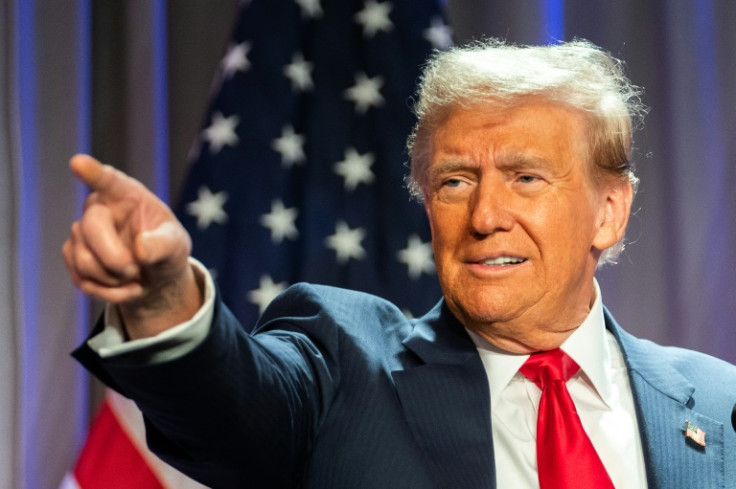What Is Birthright Citizenship And Why Did Trump Move To End It? What You Need to Know
This latest move sees President Trump once again challenging an established order

When President Donald Trump returned to the White House on 20th January 2025, he swiftly signed a controversial executive order to abolish birthright citizenship—a principle enshrined in the 14th Amendment of the US Constitution.
Birthright citizenship, a cornerstone of American identity, guarantees that any child born on US soil automatically becomes a US citizen.
On Monday, Trump directed federal agencies to deny US citizenship to children born in the country if their mother is in the US illegally or on a temporary visa, and the father is neither a US citizen nor a lawful permanent resident.
This latest move sees President Trump once again challenging the established order, with the potential to ignite a fierce legal and political debate across the nation.
What Is Birthright Citizenship?
Birthright citizenship stems from the 14th Amendment, ratified in 1868, which states: 'All persons born or naturalised in the United States, and subject to the jurisdiction thereof, are citizens of the United States and of the State wherein they reside.' This principle has meant that children born in the US—regardless of their parents' legal status—have been automatically granted citizenship.
Over 130 years ago, the Supreme Court upheld the principle of birthright citizenship in the 1898 case United States v. Wong Kim Ark. Wong Kim Ark, born in San Francisco in 1873, travelled abroad to visit his Chinese parents.
Upon his return to the US, officials who questioned his citizenship denied him reentry. Drawing on legal principles rooted in 17th-century English law and the clear text of the 14th Amendment, the Court ruled that birthright citizenship is both 'ancient and fundamental.'
Despite being so deeply embedded in American law, birthright citizenship has always been the subject of fierce political debates, especially regarding immigration policy. Critics, including Trump, argue that it has been exploited by individuals seeking to gain citizenship through their children, particularly undocumented immigrants and tourists.
Why Did Trump Want to End Birthright Citizenship?
President Trump has long criticised birthright citizenship as a loophole that has been 'abused' by those entering the US illegally. During an interview with NBC in December, Trump said, 'We're going to end that [birthright citizenship] because it's ridiculous,' he said.
Trump's administration believes that immigrants, particularly those who cross the border illegally or enter on temporary visas, should not be able to use the birthright citizenship rule to gain a foothold in the country.
The new executive order, titled 'Protecting the Meaning and Value of American Citizenship,' would end the automatic granting of citizenship to children born in the US to undocumented parents or those on temporary work, student, or tourist visas.
Trump has made his message clear: He aims to close the perceived loophole and tighten immigration laws, claiming that protecting American interests is necessary.
'You have people who come in and have a baby,' Trump told reporters after signing the order. 'That's a big one — birthright. People have wanted to do this for decades.'
The Legal Hurdles and Backlash
Legal experts quickly argued that Trump's executive order faces substantial legal challenges. For over a century, the 14th Amendment has been interpreted to guarantee birthright citizenship, and any attempt to alter that would likely require a constitutional amendment—not just an executive order.
Constitutional scholars argue that Trump's move is an overstep of executive authority.
'Birthright citizenship is far deeper and far more fundamental to the functioning of this country than just about anything else,' Hiroshi Motomura, an immigration law professor at UCLA, told The Washington Post. 'It would not only overturn precedent, but you'd have to effectively change the Constitution.'
Many legal experts have highlighted that President Trump cannot unilaterally end birthright citizenship with just an executive order.
Saikrishna Prakash, a constitutional scholar at the University of Virginia, told the BBC, 'He's doing something that's going to upset many people, but ultimately, this will be decided by the courts. This is not something he can decide on his own.'
What's Next?
Reportedly, there are an estimated 11 million undocumented immigrants living in the US, and the Migration Policy Institute estimates that 4 million children under the age of 18 live in families with at least one undocumented parent.
Meanwhile, the exact number of children born to undocumented parents in the US each year is difficult to determine, as 'birth tourism' is not consistently tracked.
Trump's executive order is just the beginning of a broader immigration agenda. His attempt to end birthright citizenship could face significant obstacles in both the courts and the public sphere. Hence, this move's legal and political fallout is likely to be intense.
© Copyright IBTimes 2025. All rights reserved.






















